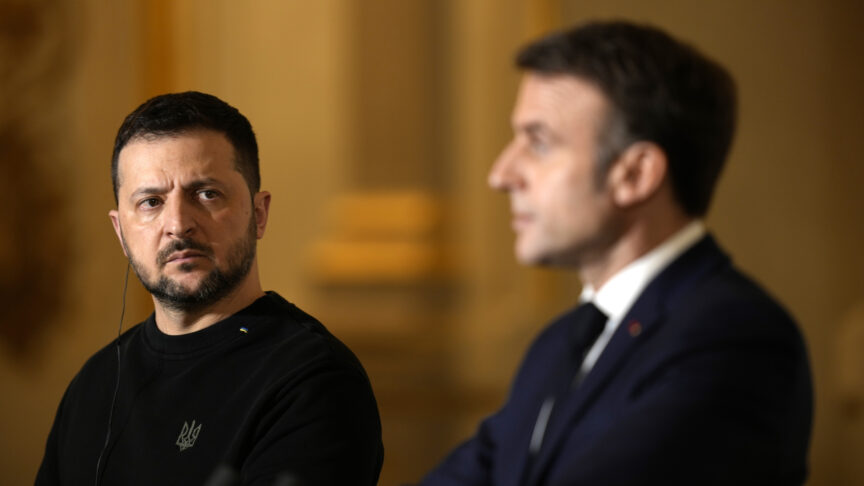After the Pratasevich arrest: Four key steps for the EU on Belarus
Belarus will continue to cause problems on the EU’s doorstep – so it is now time for a firmer, longer-term approach
On Sunday, the Belarusian regime seized a Ryanair flight passing over its territory in order to arrest journalist Raman Pratasevich. While the European Union’s reaction to this brazen incident was swift, its overall policy on Belarus – or its lack thereof – suggests that the EU is unsure of the right path forward, is uncertain of its leverage, and fears that there are no good options available for it to take. The EU worries that sanctioning its neighbour will encourage Russia to ramp up its influence in the country, bringing little benefit to either the EU or to Belarusians opposed to the regime. This has led Brussels to adopt a toothless ‘wait and see’ tactical approach, as if hoping that the crisis will resolve itself.
But popular discontent in Belarus is here to stay, and there is almost no possibility that Aliaksandr Lukashenka will leave of his own accord. He is now in the most difficult period of his reign. Lukashenka no longer has – and will likely never again have – a Western option in his foreign policy, which in the past allowed him to play off against Russia. What Moscow wants is more control over Belarus, but not necessarily with Lukashenka in place, and so he is under mounting pressure. The Belarusian economy is stagnating and the protests continue, although their form has changed and they are less visible. Lukashenka’s brutality only masks the fragility of the regime.
The other problem for the EU is that leaving this crisis effectively unresolved will only give rise to new problems and challenges down the line. Successfully capturing the Ryanair plane tells Lukashenka that he enjoys a degree of international impunity, which will only encourage him to go further. The crisis has internationalised, but not yet to the extent of the 2014 downing of the Malaysia Airlines flight MH17, which woke the West up to the reality of the war in Donbas. The EU should recognise that this week’s incident represents a call for a whole new approach to Belarus. There are four key steps it should now begin to take.
1. Focus on the core of the problem: Lukashenka’s illegitimate rule
What the EU should do with Belarusian airspace has become the focus of the EU’s emerging response. But, while this can be part of the solution, EU policymakers must not lose sight of the core of the problem, which is Lukashenka’s unrestricted and illegitimate rule. On a daily basis, his regime violates much more than international laws on civil aviation.
In addition, while restricting aviation over Belarus is a good idea, the EU should keep flight connections with Belarus and should consider allowing Belarusian airlines to access the EU. Belarus’s land borders have been closed since December 2020 (allegedly because of covid-19), so cutting flights entirely would be dangerous for those who need to flee the country. To further show EU support for the Belarusian people and help those in need, the EU could subsidise all Schengen visas for Belarusian citizens. This would, at a stroke, signal support for Belarusians while not bringing undue harm to individuals.
2. Strengthen EU commitment and solidarity
The EU needs to commit fully to helping democratic Belarus. It needs to be much more united and outspoken on this front than it has been since the country’s falsified election last summer. The EU and its member states must now begin work on solutions that they can sustain over the longer term and that can really hurt the regime.
Firstly, EU policymakers should treat sanctions policy as only one tool among many – but, when they do use sanctions, they should not do so in half-measures, which is currently the case; many key regime collaborators are absent from the sanctions lists. Next, the EU needs to explore whether it can (ideally, in cooperation with other countries, like the United States) ban financial institutions in EU member states from holding Belarusian treasury bonds, thus putting additional economic pressure on the regime. And a further bold, and much-needed, move would be to tackle the extremely profitable cigarette-smuggling business, which is likely controlled by businessmen close to Lukashenka. Cigarettes produced in Belarus are smuggled into the EU, and, while EU member states try to combat the crime, its scale is immense. More concerted EU action is therefore needed. The profits from trafficking, of course, do not go into the Belarusian budget, and very likely help sponsor the regime.
A Western response united in its anger at the Ryanair incident has already had an effect: on Sunday evening the regime was boasting about its swift and strong action, yet it has already changed tack, now claiming that it was responding to a bomb scare and that the arrest of Raman Pratasevich was just a coincidence.
To sustain this new focus, the EU should swiftly nominate an EU special representative on Belarus. Even if the special representative’s work gets thwarted inside Belarus, this individual would have the important role of keeping the issue high on the European and international agenda. They would be able to work to solidify the EU’s policy on Belarus across institutions and member states.
3. Demand the release of all political prisoners
The eyes of the world are now on Pratasevich. In his own words, the fear now is that he might die in Belarus. He is the co-founder of Telegram channel Nexta, which helped reach millions of people at the height of last year’s repressions, and thus played an important role in the protest movement. The authorities accuse him of terrorism, and Belarus is the only country in Europe that still practises the death penalty.
As was the case in the past, Belarus might now want to play a game of political prisoners with the EU: releasing just one, expecting concessions, and imprisoning many more once it achieves certain goals. While fighting for Pratasevich’s release, the EU should bear in mind that there are now over 400 political prisoners in Belarus. It should demand freedom for them all.
4. Keep Belarus policy separate from Russia policy
The EU should focus its pressure on Lukashenka and ensure it does not link its Belarus policy with its Russia policy. Given speculation about Russia’s involvement in seizing the plane, there are suggestions that sanctions on Belarus should be combined with sanctions on Russia. But this would not be the most effective approach. Such a move could complicate the process within the EU, as several states are sceptical of strengthening sanctions on Russia. And such a linkage could also push Russia and Belarus closer together. Relations between the two countries are complicated; they are not as close as might be suggested by the Union State to which they belong. Disagreement between them strengthens Europe’s hand.
The EU and its member states must now begin work on solutions that they can sustain over the longer term and that can really hurt the regime
The EU should therefore put pressure on Lukashenka alone, while separately working on a stronger, more assertive policy on Russia. The EU should increase the price that Moscow pays for supporting the sanctioned and embattled Lukashenka regime. Doing so will make Russia more willing to compromise once the EU seeks to negotiate a solution to the Belarus crisis with Moscow.
Perhaps the biggest takeaway for European diplomacy from this week’s aircraft incident is that the political stalemate inside Belarus has turned the country into a place right on the EU’s border that is creating increasing numbers of problems for it, requiring Brussels both to act and react. This cannot last. The EU should therefore qualitatively change its approach towards Belarus and make every effort to resolve the current crisis and stop it from further aggravating its neighbourhood.
The European Council on Foreign Relations does not take collective positions. ECFR publications only represent the views of their individual authors.



